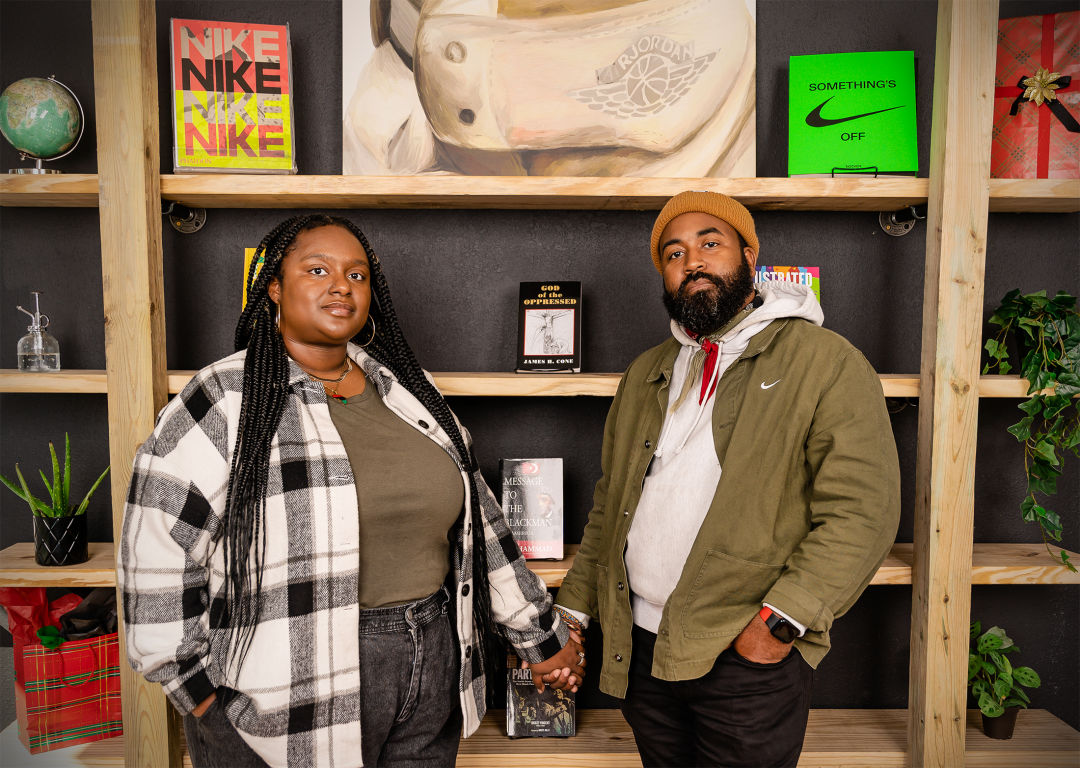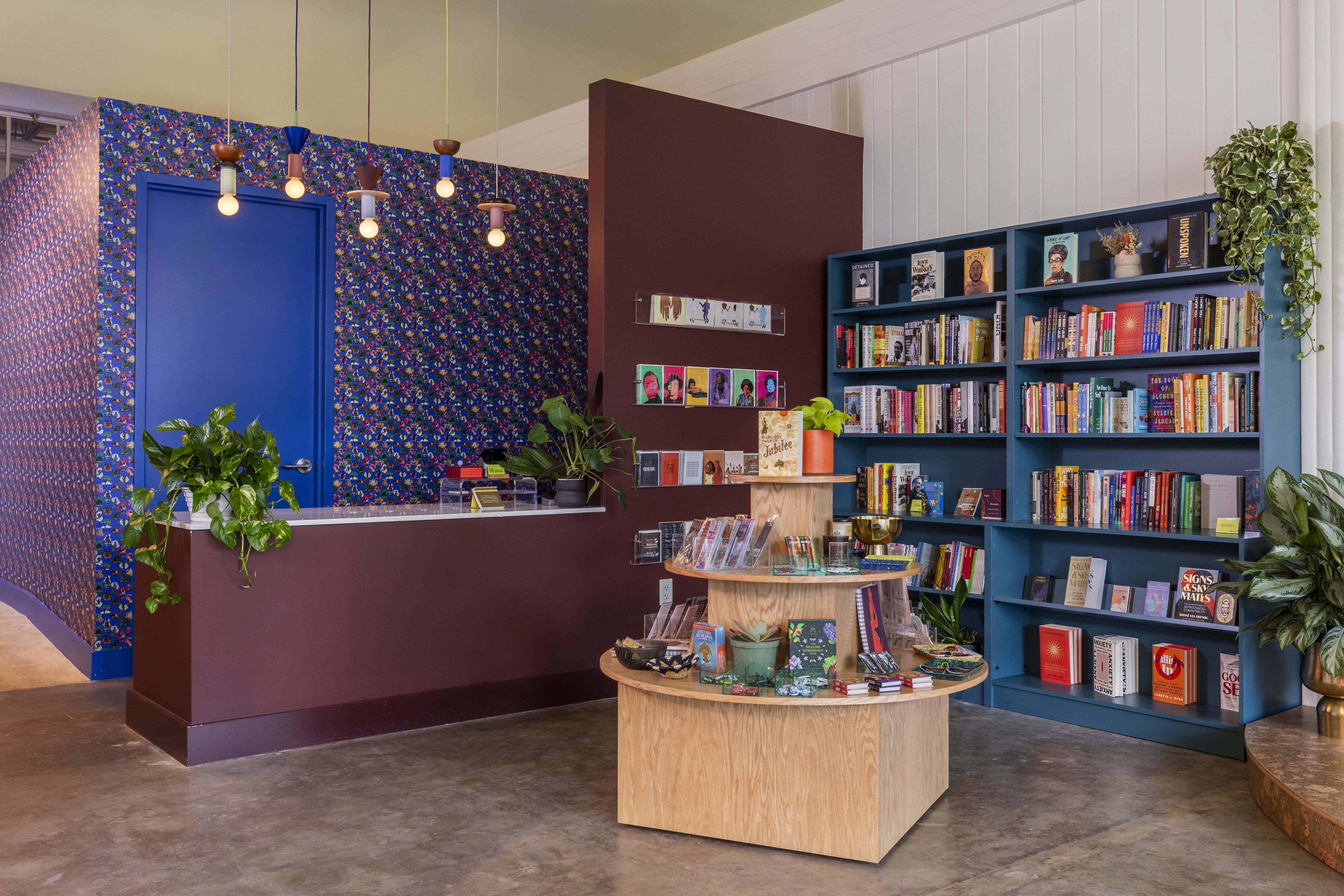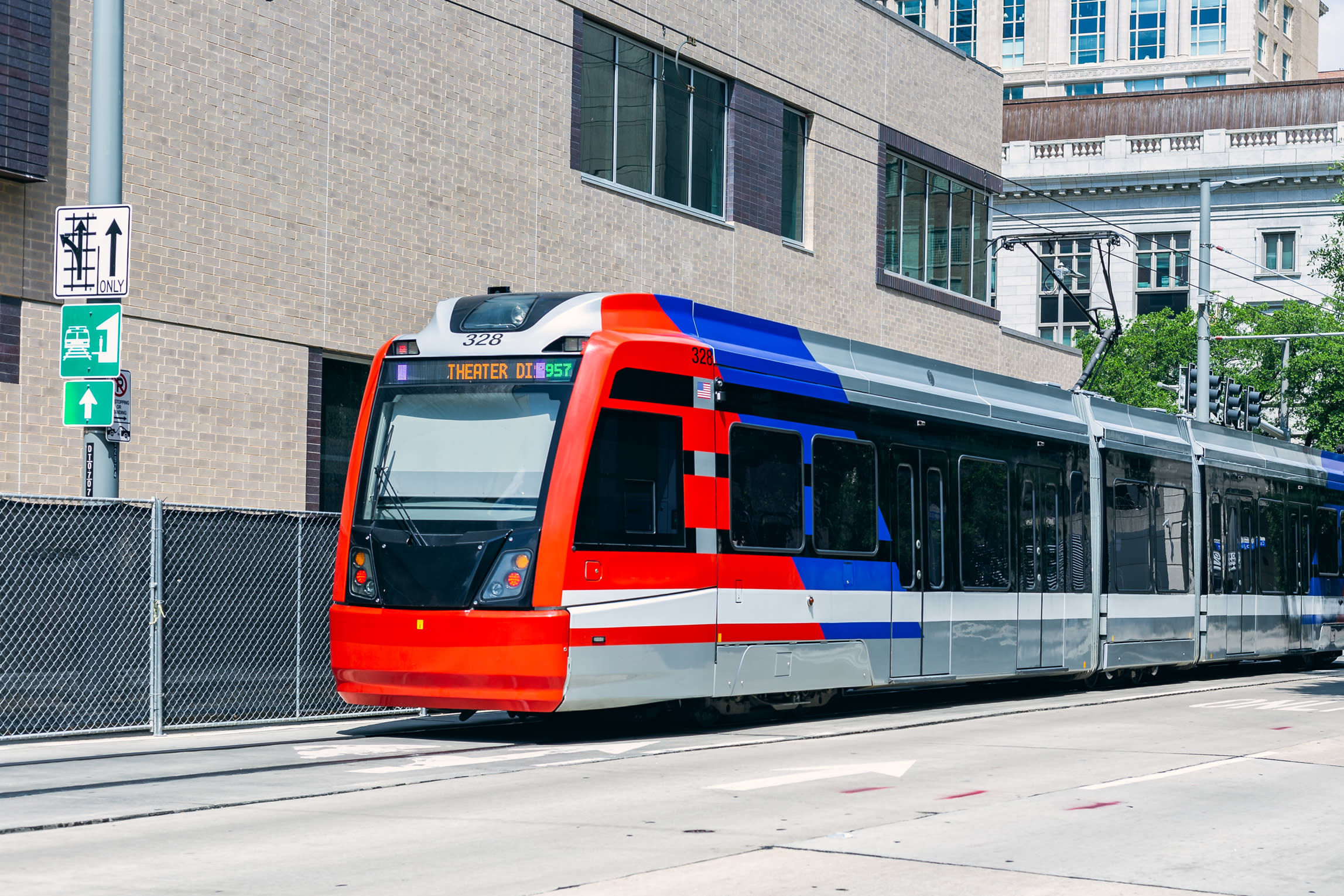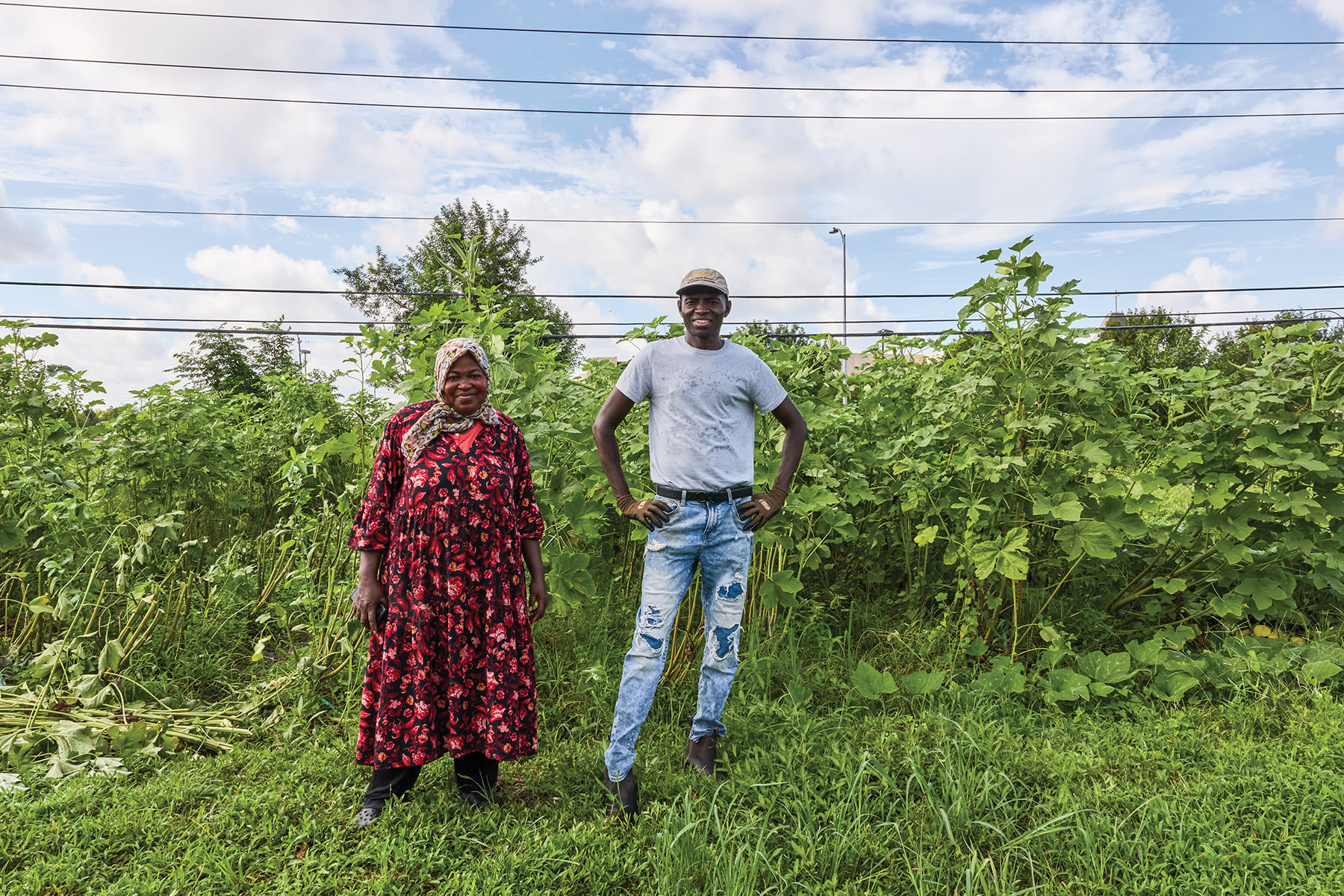These Houstonians Create Oases Among the City’s Literacy Deserts

Image: Courtesy of Book Cycle
In Houston’s East End, almost-but-not-quite in the shadow of Shell Energy Stadium, there’s a red brick warehouse. Several brick warehouses, in fact. The one located off Velasco Street, however, provides an unassuming facade to a critical literary organization: Book Cycle, the 100 percent free used bookstore. There’s no catch. You go in, browse the shelves for gems both hidden and well-excavated, and take what you want. All you need to do is jot down the number of books you plan to take home. No obligation to return them. No late fees. No required in-kind donations.
Book Cycle’s founder, Sara Loperena, is one of many Houston-area bibliophiles seeking to make reading materials more accessible in the city’s literacy deserts, also referred to as “book deserts,” on a grassroots level. She specifically chose the East End for her brick-and-mortar establishment—after graduating from a mobile cart she toted to farmers markets and festivals—because of the sheer variety of people she could reach. Families in neighboring homes walk to the shop, and the nearby train and bus stops allow readers without cars to come by and pick up books.
Loperena also notes that neighborhood organizations like East End Management District take an active role in ensuring that residents’ needs are met, even if the area has historically struggled with resources.
“I do think a huge part of why I was really attracted to the Second Ward as a whole was just because of how many groups there are working to keep resources,” she says. “That’s a vitality that you don’t see in a lot of other neighborhoods.”
The concept of literacy deserts isn’t as solidly defined as the better-known food desert. There is no USDA equivalent tracking the number of reading materials in a home, libraries per capita, or number of bookshops in a neighborhood. Unite for Literacy, a nonprofit devoted to bringing more books to more people around the country, offers probably the most comprehensive overview of what constitutes a literacy desert and how many exist in the United States: The organization believes that 100 books per home acts as a tipping point in determining a child’s academic success.
Unsurprisingly, Unite for Literacy’s research noted a significant discrepancy between the availability of reading materials in wealthy neighborhoods and their low-income counterparts. Most of Houston, with notable exceptions like River Oaks, Montrose, Midtown, the Museum District, and the Heights, qualifies as a literacy desert under the organization’s criteria. But it isn’t just the presence of books that helps prevent literary desertification. Unread resources gathering dust on a store or library shelf benefit nobody. People have to be able to actually bring said books home in the first place.
“When we say ‘access,’ we don’t just mean that the place is there. We mean that it is available with reasonable hours for people to be able to go into,” says David Landry, who co-owns Third Ward–based Class Bookstore alongside his wife, Dara. “We understand that in the area where we are currently, many of the working-class people that live here work during the hours when libraries are open. We try to stay open after people get off from work.”
He points out that price can be a major barrier to book ownership as well. While Class needs to turn a profit in order to keep operations going, they do offer a shelf full of free used books on a variety of topics. Visitors are welcome to make donations to it.
“Making it to where people are able to access the physical space and be able to afford things, or have access to those books, I think that is a great addition to the definition [of a literacy desert],” Landry says.

When compared to food deserts, literacy deserts may initially come off as less critical, more frivolous. But education is a basic human right, too, one that fulfills necessary mental, social, and material needs even if not physical. A loss of literacy can and does cause harm to local communities.
According to the Barbara Bush Houston Literacy Foundation (BBHLF) and Gallup, over one million Harris County adults, or one out of every three adult residents, meet the criteria for functional illiteracy, which the foundation defines on its website as “not able to read, write, compute, think critically, and communicate orally well enough to function on the job, in the family, and across society.”
BBHLF estimates that the local economy could grow by $13 billion if this literacy gap were to close, boosting the city’s total GDP by 3.3 percent. According to the organization’s Houston’s Adult Literacy Blueprint, which outlines its goals for improving the city’s literacy rates, “low literacy and unemployment cost the US $225 billion a year from lost workforce productivity, crime, and loss of tax revenue.”
By opening in traditionally underserved areas and offering free reading materials, Book Cycle and Class have started promoting a holistic approach to closing those 100-book gaps. But what about families who still may not be able to make it to a bookstore or library due to time or transportation constraints? That’s where Birthday Bash Box’s concept serves as a fix.
“We…celebrate the birthdays of children in under-resourced families where they may not necessarily have the funds to put toward getting items or a cake or things for birthdays,” says Birthday Bash Box founder and CEO Seante M. Johnson. “We wanted the organization to have a deeper meaning and be more impactful than just celebrating a child for that one day.”
Along with all the accoutrements of a birthday party and—of course—toys, every box comes with books on topics that the receiving child enjoys. Most of the books distributed are in English or Spanish, but Johnson has also given away reads in Vietnamese and German. As the daughter of an early childhood educator, she grew up knowing, understanding, and appreciating the integral role literacy plays on personal and societal levels alike.
“It’s the foundation for life… It’s more than just reading. It’s comprehension. It’s imagination,” she says. “At the very basic level, if someone can’t read and comprehend what they're reading, then the cracks in that foundation don’t allow that person to, in my opinion, thrive in the way that they could.”

Loperena actively encourages others to take her Book Cycle idea and open free used bookstores or traveling carts in their own neighborhoods. Plans are also underway to partner with local tutoring centers and other educational organizations to bring the books to the community when the community can’t make it to the books.
Yet as the number of books per household grows as a result of these initiatives, there really is no incentive to stop once the 100 mark is hit across the board. The benefits of a literate populace continue to scale from that one point, and there’s plenty of room amid the sprawl for more Book Cycles, more Birthday Bash Boxes, more Class Bookstores.
“The beautiful thing about Houston is you can’t ever have enough of anything,” Landry says.




